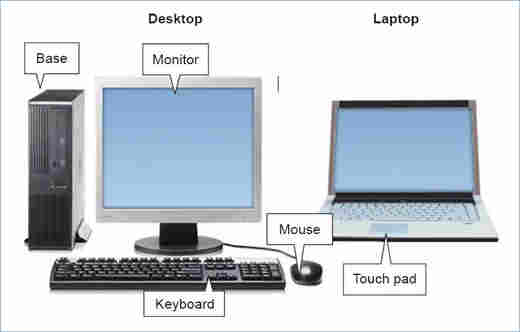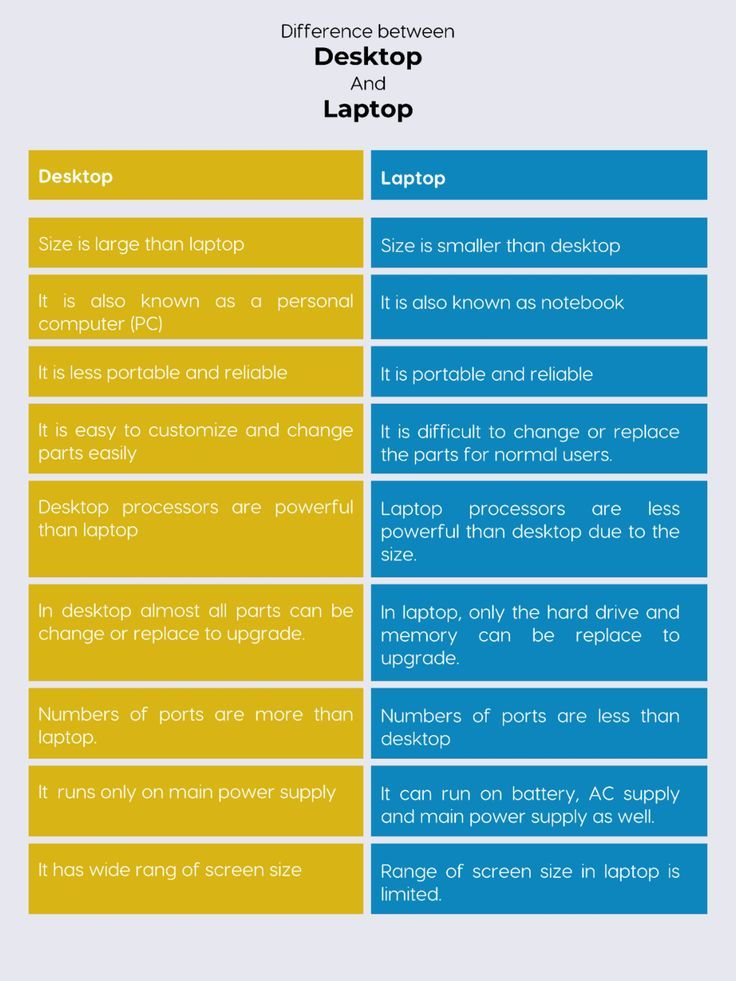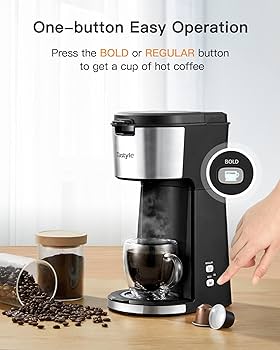Breakdown on Tech Products: Understanding Differences Between Laptops And Desktop Computers
Introduction
With a plethora of tech products available in the market, it is important to understand the features and capabilities of different devices to choose what aligns best with your needs. In this comprehensive guide, we dissect the similarities and differences between two common types of computers - laptops and desktops. While both serve the basic function of computing, they differ significantly in terms of portability, performance capabilities, expandability, durability, and practical implications. This article will provide you with the necessary insights to make an informed decision about which device is best suited for your specific needs and preferences.
What Constitutes a Laptop?
Portability: The Defining Feature of Laptops
A laptop, or notebook computer, is a compact all-in-one device designed for mobility and ease of use. They embed all the necessary components such as a display, keyboard, touchpad or trackpad, and speakers into a single unit. Here’s how portability sets laptops apart from other devices:
- Size and Weight: Laptops tend to be lightweight and compact, enabling effortless transportation. Making them perfect for those who constantly switch work locations or frequently travel.

- Battery Operation: Distinctively, laptops can operate on battery power. This feature eliminates the need for constant power supply access, making working on the go even more convenient.
Unpacking the Performance Capabilities of Laptops
The performance abilities of laptops can greatly vary based on their configurations. Here’s a look at laptops capabilities:
- Storage: While size limitations may restrict a laptop's built-in storage capacity compared to desktops, many modern laptops offer substantial hard drive space and solid-state drives.
- RAM: Laptops typically offer anywhere from 4GB to 64GB of RAM. More RAM allows for efficient multitasking and faster load times.
- Processor Speed: The advent of powerful processors compact enough for laptop use has significantly bridged the gap between laptop and desktop performance capabilities.
- Graphics: Technological developments have seen the creation of laptops with impressive graphic capabilities, matching and sometimes outshining their desktop counterparts.
In summary, while laptops may not always equal the raw power of desktops, they provide an admirable performance level combined with unrivaled portability.
What Defines a Desktop Computer?
The Link Between Desktop Computers and High Power Performance
Desktop computers bear a reputation for delivering potent processing power that surpasses most other forms of computer hardware on the market. Why is this so? Let's delve into the specifics:
- Space Becomes Size: Desktop PCs are more substantial in size compared to their laptop counterparts. This feature gives them ample room to fit in more powerful hardware.
- Room for Cooling: Desktops have additional space, which can accommodate more effective cooling mechanisms. This factor permits the use of high-performance processors that may generate more heat.
The Durability and Expandability of Desktop Computers
Another critical feature that creates a distinction between laptops and desktops is durability and expandability. Let’s explore these concepts:
- Room for Upgrades: Desktops inherently benefit from their larger casing which accommodates more components. This attribute gives desktops an edge in customization and frequent upgrades, making them adaptable to evolving technologies.
- An Increased Life Span: Desktop computers, due to their stationary usage, undergo lesser wear and tear compared to laptops. Their robust build, coupled with the capacity to replace individual components, often results in an extended lifespan.
Boasting high power performance and being expandable and durable, desktop computers inevitably make a solid case for themselves, particularly for users seeking adaptability, higher processing power, and longevity in their computing devices.
How Do Key Components Compare in Laptops and Desktops?
Comparative Analysis of Processor Performance: Laptop Versus Desktop
To stay competitive in the technology market, both laptops and desktops are continually updating hardware to keep up with ever-increasing demands. However, their processing performances still vary notably:
• Space for cooling: Desktops have larger casings that allow for advanced cooling mechanisms. This promotes robust processing capabilities and significantly reduces overheating, even in resource-intensive operations. On the other hand, laptops sometimes struggle with effective cooling due to their compact sizes.
• Speed and power: As far as performance speed and power are concerned, desktops usually have the upper hand. While laptops have become more powerful over the years, desktops can still house faster and more powerful processors, amplifying their performance.

Comparing Graphic Processing Capabilities: Laptop Versus Desktop
The graphic processing abilities of laptops and desktops greatly impact their suitability for various tasks:
• Room for advanced graphics cards: Desktops have plenty of space to accommodate high-powered graphic cards. Coupled with efficient cooling systems, desktops are capable of smooth operation under high graphical load, making them excellent for gaming and graphic design.
• Laptop's advancements: Laptops have made immense strides in this department. Modern laptops can support graphic-intensive tasks usually reserved for desktops. Still, they are somewhat restricted in terms of cooling and physical space, making desktops the better option in terms of raw graphic power.
Conclusively, desktops typically outperform laptops in terms of both processor and graphics capabilities, primarily due to their larger size allowing for greater power and efficient heat dissipation. However, modern laptops are catching up quickly, evolving into powerful, compact computing machines. The final choice would depend on various factors such as user priorities, requirements, and usage patterns.
What are the Practical Implications of Choosing Laptop or Desktop?
In the pursuit of choosing between a laptop or a desktop, understanding the circumstances under which each device resonates better is pivotal. The following are a few scenarios that favor either a laptop or a desktop:
In What Situations is a Laptop Preferred Over a Desktop?
Choosing a laptop is highly preferred in the following circumstances:
• Mobility: Laptops make a suitable choice for those who are always on the go such as travelers or freelancers. They are lightweight and compact, making them easy to carry around.
• Space Saving: For those who have limited workspace, laptops are a perfect choice because of their compact design.
• Convenience: For users who need to work from varying places, such as cafés, client offices, or shared workspaces, laptops are more convenient.
• Power Consumption: Laptops usually consume less power when compared to desktops, which could lead to some savings on energy bills.
Under What Circumstances is a Desktop Preferred Over a Laptop?
Desktops are more suited to the following scenarios:
• Hardcore Gaming and Professional Work: For serious gamers, graphic designers, video editors, and other professionals who need high-end performance, a desktop is a way to go.
• Expandability: Desktops offer more room for upgrading storage, memory, graphic cards, and other features, which can be a critical factor for tech enthusiasts and professional users.
• Longevity: Based on their robust architecture and less wear and tear, desktop computers generally tend to have a longer lifespan than laptops.
Conclusively, the choice between a laptop and a desktop is highly specific to an individual's needs and professional demands. One must contemplate before arriving at a suitable choice.
Conclusion
Whether you choose a laptop or a desktop, it all boils down to your specific needs and usage patterns. If mobility and compactness are your priorities, you might gravitate towards laptops. However, if performance, expandability, and longevity are more important to you, desktops could be more suitable. It is crucial to weigh the pros and cons and to consider your requirements before making a decision.
Related FAQs about what is the difference between laptop and desktop computer
What is the major advantage of laptops over desktops?
The primary advantage of laptops over desktops is their portability. Laptops are lightweight, compact, and operate on battery power, making them easy to carry and use anywhere. They are ideal for those who need to work on the go or work from various locations.
How does the upgradeability of desktop computers compare to laptops?
Desktops are typically more upgradable than laptops. The larger casing of a desktop computer allows for more room to upgrade components like RAM, storage, and graphics cards. Laptops, with their compact design, have limited upgradeability as most parts are built-in.
In terms of cost considerations, which is a better option, a laptop or a desktop?
From a cost perspective, both laptops and desktops can range significantly in price, depending on their specifications. However, generally, a desktop computer with high-end specs tends to be more affordable than a laptop with similar specs.


